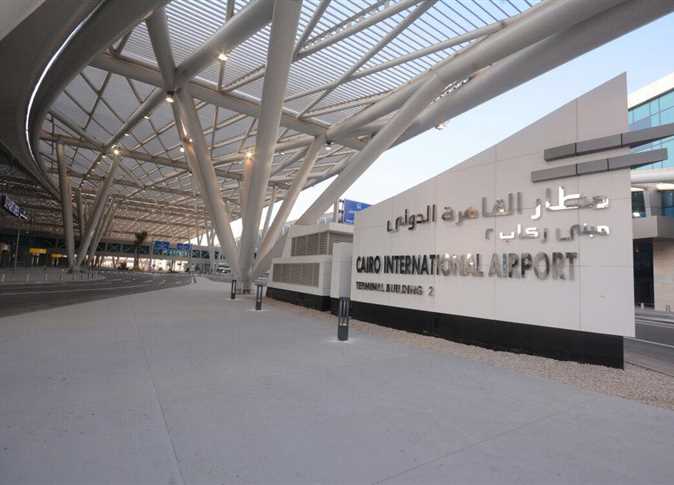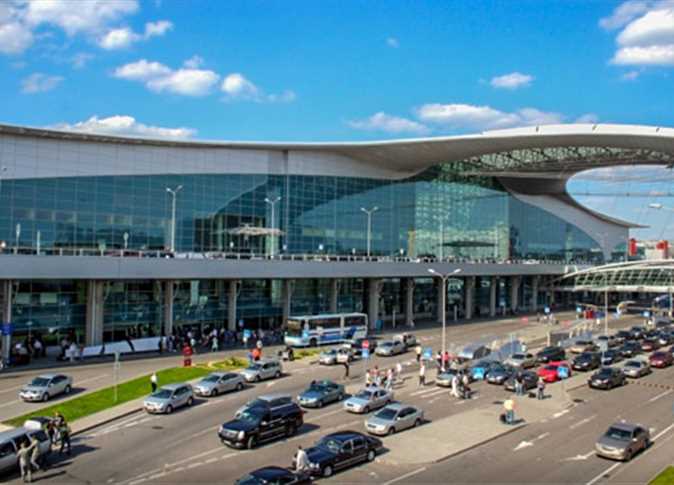Kamal Abbas knows the routine by heart now. For the veteran labor activist, every trip to Cairo International Airport requires its own special pre-flight checklist.
“I don’t even take my laptop any more. No books, no papers and I go extra early,” said Abbas, the general coordinator for the Center for Trade Union and Workers’ Services (CTUWS), an NGO focusing on labor issues.
Twice this year, Abbas has been pulled aside at the airport and subjected to special security scrutiny.
“The airport police don’t even know why they’re detaining you. They just know your name is on the computer,” Abbas said. “It’s a very strange system.”
He’s hardly alone. Every month seems to bring new tales of airport security hassles for Egyptians and foreigners alike. The phenomenon can’t exactly be called new–Abbas recalls getting hassled at the airport as far back as 1995–but this summer has witnessed a mystifying batch of new incidents.
A probably incomplete list:
- June: Prominent blogger Wael Abbas was detained for 13 hours after returning from a conference in Sweden. His bags were thoroughly searched and, even after his eventual release, police kept his laptop computer and have never returned it.
- July: Kamal Abbas was detained and questioned for several hours while traveling to Belgium.
- July: Abdelrahman Ayyash and Magdy Saad, two young Muslim Brotherhood-affiliated bloggers, were detained after returning from a trip to Turkey. The pair were eventually transferred from airport detention to security directorates in Cairo and Mansoura, where they were released after several days of questioning.
- August: Wael Abbas was detained again, this time for three hours, while returning from a trip to Lebanon
- Early September: American citizen Travis Randall was stopped while returning home to Egypt. After a 14-hour detention, police told Randall he was suddenly banned from entering Egypt.
- Mid-September: Kamal Abbas was again detained and questioned prior to boarding a flight to the United States.
- Late September: Swedish journalist and blogger Per Bjorkland was stopped while returning home to Egypt and informed he is banned from the country. He spent three days in an airport detention cell before being deported.
- Hours later, Wael Abbas was once again detained while trying to board a flight to the United States. He was eventually allowed to take his seat, then suddenly pulled off the plane, then finally allowed to travel.
- Early October: Rahma Refaat, the program coordinator for the CTUWS, was detained for about two hours before being allowed to depart to the United States.
- So what does it all mean?
Discerning a logical pattern from the string of incidents is a murky job, and anything regarding state security issues isn’t going to be commented on by the government in any useful way.
At best, an analysis of the detentions can help shine a light on the priorities, sensitivities and anxieties of the regime.
Some of the targets chosen follow a certain degree of logic in a police-state sort of way.
The CTUWS activists, for example, can definitely be considered a persistent thorn in the side of the government’s economic interests. The organization has been accused by the regime of involvement in the current labor unrest and boasts strong ties with international labor movements and socialist organizations.
Likewise Wael Abbas could easily be regarded by the government as a high-priority trouble-maker. His Misrdigital blog has embarrassed the regime in the past by presenting video evidence of torture in police stations; even worse, Abbas has been warmly embraced in Western political circles, giving him an international platform for his views.
Other airport detentions are harder to justify, even from the adopted point-of-view of a repressive and paranoid regime. Ayaash and Saad, the two Brotherhood bloggers, are theoretically natural targets for their open affiliation to the banned and frequently persecuted group. But in the grand scheme of things, both would qualify as fairly small fish.
Bjorkland and Randall’s experiences are an even bigger mystery. Bjorkland’s journalistic writings and blog entries might be regarded by some as overtly activist in nature, with an emphasis on labor issues and workers’ rights. But it’s hard to classify him as any sort of threat to the regime.
Randall, meanwhile, worked as an editor for an environmental NGO and a freelance writer for a local glossy lifestyle magazine. His only “crime” as far as anyone can tell was participating in a tiny February protest March in support of Gaza. Bjorkland also attended the march, (covering it as a journalist, he says) and one of the organizers, Phillip Rizk, was detained the same day and spent several days in police custody.
Randall, writing on his personal blog, expressed mystification at being singled out for such a harmless bit of momentary activism.
“No one told me why I was denied access to the country – and I presume the soldiers holding me didn’t really know. I was ‘in the computer’ and can only assume…that it had to do with my presence on the march,” he wrote, in his first blog entry in more than a year..
If so, it begs the question: why would a fairly harmless and sparsely attended pro-Gaza march from February touch such a nerve with the government?
“It was just a small march through some villages outside Cairo,” Bjorkland said by telephone from Sweden. “I think the fact that they didn’t know about it really upset them.”
Certainly anything to do with Egypt’s Gaza policy is a major sensitive spot for the government. Prominent Muslim Brotherhood member Essam el-Erian told Al-Masry-Al Youm earlier this summer that a major reason for the government’s accelerating crackdown on the Brotherhood was the group’s stance against Egypt keeping its Rafah border largely sealed during Israel’s recent prolonged assault on Gaza.
Another curiosity: according to multiple accounts, the detentions and interrogations seem weirdly bureaucratic and half-hearted.
Wael Abbas’ recent experience–being interrogated, then allowed to board, then pulled off the plane then allowed to board again—seem more like psychological harassment than anything else.
Bjorkland said his interrogators didn’t seem to know just why he was in the computer, and Kamal Abbas said the same.
“If your name is in the computer that’s it,” Kamal Abbas said. “And who put your name on the computer? Nobody knows.”



